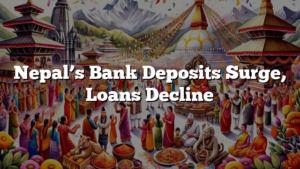
Finance Secretary Marasini Calls for Increased Financial Support to Drive Nepal’s Post-Pandemic Recovery and Green Development Initiatives
During the 57th annual meeting of the Board of Governors of the Asian Development Bank (ADB) in Tbilisi, Nepal’s Finance Secretary Madhukumar Marasini made a compelling appeal to the international community for concessional assistance. Highlighting the economic and developmental setbacks caused by the Covid-19 pandemic, Marasini emphasized the urgent need to mobilize significant capital to support Nepal’s recovery efforts.
Underscoring Nepal’s commitment to green, resilient, and inclusive development (GRID), Secretary Marasini called upon all development partners, including the ADB, to amplify their financial and technical support. He stressed the importance of collective efforts to foster emerging economic development in South Asia, emphasizing the need for interdependence, innovation, and digitization to bolster interregional trade.
Marasini acknowledged that the Nepali economy has been grappling with global economic challenges in the post-pandemic era, resulting in slow growth and economic stagnation exacerbated by revenue deficits and escalating debt obligations. In light of these challenges, he emphasized that collaboration with the private sector has become imperative for Nepal’s economic recovery and sustainable development.
Highlighting Nepal’s efforts to cultivate an investment-friendly environment, Secretary Marasini cited the recent organization of the third investment conference in Kathmandu. He expressed confidence in ADB’s potential to facilitate investment in key sectors such as tourism, hydropower, and information technology, leveraging Nepal’s comparative advantages.
Expressing gratitude for ADB’s continuous support, Marasini hailed the institution as a steadfast partner in Nepal’s developmental journey. He commended Nepal’s strides in fostering social inclusion and economic development over the past decade, underscoring the importance of sustained collaboration with international partners like the ADB for further progress.
Nepal’s appeal for concessional assistance at the ADB annual meeting underscores the country’s commitment to overcoming the economic challenges posed by the pandemic and achieving its green development goals. As Nepal navigates the path to recovery, the support of multilateral institutions and the international community will be crucial in mobilizing the necessary resources and expertise to drive sustainable economic growth, climate resilience, and social inclusion.
Related:



